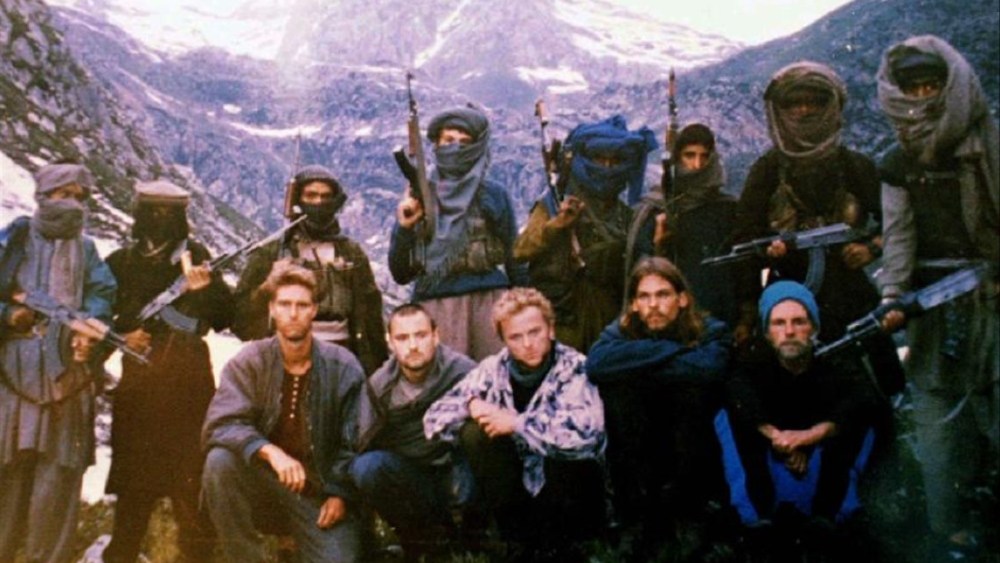‘Golden Swan’ Director on Her Brother’s ‘Reconciliation’ Before Murder
Anette Ostrø’s debut feature-length film “The Golden Swan” took the seasoned filmmaker, who has been directing documentaries for television for decades, nearly 30 years before she was ready to make it.
The film, which was first pitched at IDFA, tells the story of Ostrø’s brother Hans Christian, a Norwegian actor who was abducted and murdered by a terrorist group during a trip to India in 1995. Now in post-production, the doc was one of five films presented this week as part of the Norwegian showcase at Visions du Réel’s industry program. Variety caught up with Ostrø and her producer Beathe Hofseth in VdR’s host town of Nyon, Switzerland.
Hans Christian and five other tourists — from Germany, the U.K. and the U.S. — were abducted in Kashmir in July 1995. The kidnapping made headlines around the world at the time. Five weeks later, Hans Christian’s beheaded body was discovered. One hostage escaped. The four others were never found.
Blending photographs, home videos shot by friends and family, news reports and original sound recordings of the hostages, “The Golden Swan” also includes footage of Hans Christian during a dance course in Kerala, before he set off on a tour of India which took him to Kashmir.
But the heart of the film lies in his writings — letters, diaries and poems, most of which were found on his body. The hostages had also written on bark leaves with charcoal and hidden the messages under stones and in trees in the hope that someone would find them.
“We wrote letters to each other when he was in Kerala. And I kept writing to him even when he was held captive in the mountains. The film starts with a dream I have of him where he comes back alive — it’s a dialogue between me and him,” said Ostrø, who enlisted an actor to read her brother’s letters and poems.
From his writings, Ostrø learned that her brother tried to escape on at least three occasions and also went on hunger strike. To illustrate his inner world, she turned to what she calls “artistic visualization”: “To tell my brother’s story, I filmed nature in India and Norway, playing with light, shadow, water and abstract elements you can feel more than see. I worked with double exposure, layering images to evoke his fears, his emotions.”
The film charts an inner journey that the director feels is profoundly relevant today.
“He could have left his life in hate, in rage and blame — and he was angry, his freedom was taken from him, he lived under daily death threats. But in the end, he chose peace. Through his poetry, I saw his journey from hate to reconciliation. He made peace with his fate and with his abductors, he tried to understand where they were coming from.
“To choose reconciliation over hate — that’s the reason I’m making this film. The world is so polarized today, we are so quick to see the worst in others. But we need dialogue. Not necessarily forgiveness, but the kind of reconciliation that allows us to see our shared humanity.”
Ostrø and Hofseth (“Light Fly, Fly High”) attended Visions du Réel to secure final gap funding and a distribution partner ahead of a planned release in late 2025 or early 2026.
“The Golden Swan” is produced by Hofseth and Siri Natvik of Fri Film, with Helle Faber of Made in Copenhagen — known for the Sundance title “Mr Nobody Against Putin” and Hot Docs winner “The Mountains” — joining as co-producer. Olivia van Leuven of 100% and Erika Malmgren of Cinenic Film also co-produce.
The film is supported by the Norwegian, Danish and Swedish film institutes, Viken Filmsenter, the Netherlands Film Fund, the Fritt Ord Foundation, Arts Council Norway, Oslo Filmfond, Nordisk Film & TV Fond, Bergesenstiftelsen, NRK, DR and EOdocs.
Other titles presented in the Norwegian showcase include “Strangers & Stayers” by Julia Dahr, Julie Lunde Lillesaeter and Hannah Jayanti, Amir Ajdinovic’s “The Universe Is My Selfie,” Maria Galliani Dyrvik’s “Hope Is a Word” and Maja Holand’s “Hex.”
These films reflect the continued strength of Norway’s documentary scene, following recent international successes like Oscar winner “No Other Land,” co-produced by Norway’s Antipode Films, Benjamin Ree’s Sundance winner “The Remarkable Life of Ibeli,” and this year’s CPH:DOX opener “Facing War” by Tom Gulliksen.


